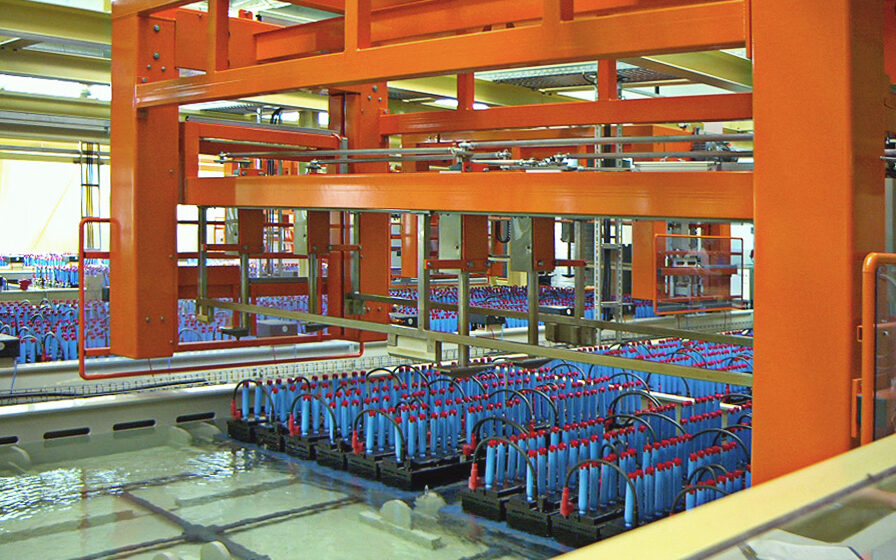German engineering company Kustan says its manufacturing backlog is stronger than ever, both for its historic business and for the products migrated from Inbatec, the company with which it combined in 2024.
In an interview with BEST, Kustan managing director Christian Papmahl and Nick Hennen, vice president of Kustan in charge of sales and business development, said the company will complete the set-up of its organisational structure in the first quarter of 2025.
Inbatec was closed in April 2024 and Kustan is the continuing company, maintaining its own product portfolio as well as Inbatec’s. That covers lead-acid, lithium and flow batteries, as well as industrial metal processing, food and beverage, and other industries requiring corrosive liquids.
Inbatec was a “one-trick pony” specialising in lead-acid alone, according to Hennen. Papmahl describes Hennen as the “idea generator and driving force” and added: “As owner of Kustan, I am completely confident that our future is bright and our current manufacturing bookings for the next 12+ months and the financial stability it brings are a sign of this.” He said orders total well over €20 million ($21 million).
As a small company of 80 employees, Kustan’s chosen niche is engineering excellence. It has closed one of the three manufacturing facilities following the combination, but Papmahl and Hennen point out the company is not laying off staff and plans to grow. It hired new staff in January. “At Kustan, at any time we can manufacture or engineer the same things that Inbatec did in the past,” said Papmahl.
Inbatec acquired Kustan in 2020, two months before the Covid pandemic hit, and this was a setback to the combination of two company operations, he said. The war in Ukraine has added to the market uncertainty.
“So this makes the diversification so important because if you stay only in the lead-acid battery business, which was nearly 90% of Inbatec’s business, then you always risk when this industry is struggling,” he added.
“And so of course companies think, okay, should I invest in lead-acid? Should I invest in lithium? Should I invest in flow batteries? If you have products or engineering capabilities or engineered solutions for all of these battery chemistries, you’re much better. And this is a strategy for the future, which is partly already in place.”
Hennen said the same diversification is happening in Kustan’s lead-acid customer base. “You see US companies like Stryten getting involved in vanadium flow batteries and East Penn involved in the production of lithium batteries. And there’s a major investment at Enersys with building a North American lithium factory.
“…So we are mirroring what our customers are already doing, which I think also allows us to provide them solutions – not just in their lead-acid production – but follow them as they do other things.”
Papmahl said there are no plans to list Kustan and the immediate priority is to carry out its growth strategy over the next few years. He remains as one of two shareholders. The other is Norbert Ahnemann, who is retiring from active work.
In December we reported on the formation of the Energy Storage Equipment Manufacturing Alliance (ESEMA), comprising Kustan, Sorfin Yoshimura, MAC Engineering, CMWTEC Technologie and Digatron.
Photo: AGM formation. Kustan












